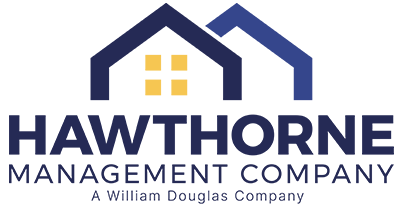Taking an active role in your community is an essential function of being an HOA Board Member. General maintenance and upkeep can include projects like gardening, repairs, cleaning services or other handyman tasks. Managing these vendors can feel like a daunting task, especially if you are new to hiring vendors and reviewing contracts. To ensure your board is not wasting time, money, or resources, we have some tips to help you manage your vendor agreements and make sure the job gets done efficiently.
Reviewing Vendor Agreements, Proposals and Bids with Your HOA Board of Directors
When accepting a vendor proposal, the board is bound to legal requirements such as state and community CC&Rs. Be sure to follow the process of reviewing and selecting vendor proposals correctly to the end.
After receiving a completed proposal, review the document with anticipated questions from board members (and/or residents). Some questions to consider are cost of the project and how long it will take to complete. Take note of any other questions from homeowners and board members to research during the proposal process.
To solicit a bid, be sure to include a detailed description of the project including a general quantification of number, volume, and/or size. For example, “installing gates at entries” is not a detailed enough bid. “Install two 8’x6’ metal gates at each of the three entries” would be a better description ensuring each vendor is able to bid on the same project.
When reviewing vendor proposals, certifications, licenses, bonds, or insurances may be required by your state or community CC&Rs. You may also need to provide contractors with your HOA’s certification for association and management insurance, and in return, the contractor will need to provide your HOA with their tax ID number. Be sure each vendor is properly certified before approving their bid.
If you are not working with an HOA management company, your HOA board may take on a supervisory role for the CAM project. Ask new vendors about their previous experience working with HOAs. Be sure to follow up on their work and make note of their process. These items can include cleanup process, starting and finishing the project on time, correcting mistakes, and recommendations for future jobs.
Things to Look for in a Good Contractor
After receiving the bids and proper documentation, you may begin the selection process. While some vendor selections will be quite extensive, others may be simple. For instance, the process for hiring a vendor to change light bulbs will vary greatly from a construction project.
Hiring a contractor with quality work at a reasonable price does not have to be a daunting task. Your HOA management company can ask for vendor references or contact the Better Business Bureau and state licensing bureau to review any complaints against a prospective contractor. Be on the lookout for warning signs that may point out potential inexperienced, disorganized, or financially troubled contractors who may provide poor services. First impressions should show a neat and professional appearance with clean equipment in good repair.
The lowest bid may not always be the best option. Quite often, you get what you pay for. Low prices or special deals could be warning signs for a potential problem. For instance, the contractor may not have enough experience to know the actual cost of the job, or he may never intend to finish the project. Some contractors may even bid low to secure the job, then tack on additional charges as the project progresses.
Do not be pressured into “limited time offers” during the bidding process. Many states will give homeowners three days to cancel a contract after signing without obligation. Contractors should also carefully review the job specifications prior to submitting their bid. They should take notes and measurements as well as calculate material and labor costs.
Another tactic to be wary of is discount services. Prospective contractors may offer a discount hoping for future business after a job well done, but be cautious of discounted material costs. Discounted materials are usually second hand, ungraded or below-grade minimums for code and could compromise the quality of your project.
Contractors typically should not ask for more than 20 percent of the total cost of the job up front. Projects with special materials such as cabinets or special-order ceramic tile may require a larger initial payment to cover the deposit for these products. However, commodity materials such as roofing and lumber typically have a 30 day pay window for the contractor.
Finally, do not accept bids from contractors who work on a cash-only basis. These contractors are likely to not be operating a legitimate business and may not be paying taxes or insurance. Paying in cash could also limit your financial recourse if problems occur. In this case, look for another contractor or ask your HOA management company for recommendations.
Contractor’s Insurance
It is not uncommon for accidents to happen on the job. Damages to property may occur or someone could get injured while working on the project. Potential lawsuits could be detrimental to your association. Making sure your contractors have insurance to protect your association and your HOA management company is imperative.
Before hiring a contractor, review their insurance policy to be sure any damages that may occur are covered. The contract should also include a guarantee or assurance by the contractor that their insurance will protect the association’s assets and relieve them from liability. Make sure the association is listed as additional insured, and call the insurance company to verify the policy is up to date and covers the work being done.
Lastly, make sure the policy is effective at the start of the project. Verify the date on the policy, and do not let the contractor begin work prior to the start date. Sometimes contractors will operate under several different names, or even under someone else’s name. In this case, be sure the name on the policy matches the contractor’s name and that the contractor has purchased the correct amount of insurance coverage.
Always consult with your HOA management company before hiring a contractor and verify insurance coverage requirements. Be sure to properly review the contractor’s insurance policy to ensure your association is covered and you will not be held liable for damages caused by the contractor.
Making a Final Decision
Shopping with multiple contractors will help drive some competition for the best rates amongst vendors. Hopefully, this will help your association find the best price for quality work. Be sure to give each vendor a detailed description of the project to ensure effective competition between contractors.
Once you have received your completed bids, prepare a comparison list or chart to present to your board. Include bids, qualifications, and references. If working with a community association management company, they should present this information to your board and recommend the best vendor for the project. After choosing the best company for your community, be sure to send a courtesy notice to the vendors you did not select as to not burn any bridges.
Finding a reputable contractor to service your most important projects can be made easier by following these guidelines to create an agreement that is suitable for all parties involved.


